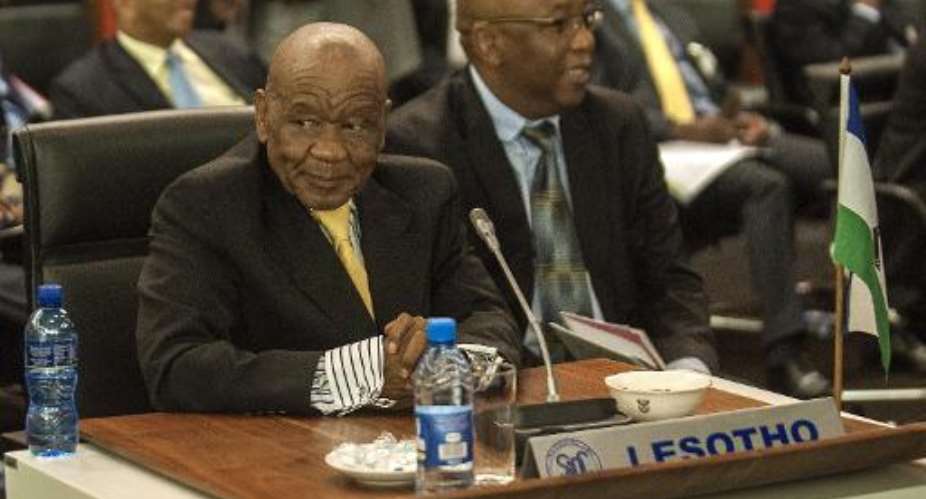Pretoria (AFP) - Troubled southern African mountain nation Lesotho's plan to hold a snap election at the end of the month was approved Friday by key regional authorities who will deploy hundreds of police to oversee the ballot.
Six months after a failed army coup against Prime Minister Thomas Thabane, observers from the Southern Africa Development Community (SADC) okayed the early election, which will be held with 475 police officers from around the region keeping the peace.
"The SADC electoral observation mission has reported that the political atmosphere and security situation is conducive to hold elections as scheduled," said Stergomena Lawrence Tax, executive secretary of the 15-nation economic and security organisation.
The vote is being held two years early in a bid to restore stability following the failed August putsch that highlighted friction between Lesotho's military and police.
Tensions have remained however in the impoverished country of two million enclaved inside South Africa. Early this month a shootout between the army and the prime minister's bodyguards at a checkpoint in the capital Maseru killed a bystander and injured two of the premier's bodyguards on February 1.
Speaking at a meeting of regional heads of state -- including Thabane, South Africa's President Jacob Zuma and Zimbabwe President Robert Mugabe -- Tax urged all parties to abide by security agreements concluded following the coup attempt.
Lesotho's defence force will be confined to barracks on election day.
Tax said SADC "condemned any activity that would compromise the holding of peaceful, free and fair elections".
In 1998, post-election violence in Lesotho saw then-prime minister Pakalitha Mosisili call in South African soldiers for help.
The resulting bloodshed left some 50 civilians and eight South African soldiers dead, with much of Maseru torched in the unrest.





 Land disputes: We must strictly enforce land tenure, administrative laws—Securit...
Land disputes: We must strictly enforce land tenure, administrative laws—Securit...
 V/R: Keta NMTC appeals for support to fix damaged auditorium
V/R: Keta NMTC appeals for support to fix damaged auditorium
 Eugene Arhin is a blessing to us — Awutu Senya DCE
Eugene Arhin is a blessing to us — Awutu Senya DCE
 Confusion in NPP Walewale
Confusion in NPP Walewale
 Chieftaincy disputes becoming national security threats — Albert Kan-Dapaah
Chieftaincy disputes becoming national security threats — Albert Kan-Dapaah
 Exchange of old cylinders for new ones under CRM to begin soon — NPA
Exchange of old cylinders for new ones under CRM to begin soon — NPA
 Cocoa Farmers Association urges Akufo-Addo to disregard allegations against COCO...
Cocoa Farmers Association urges Akufo-Addo to disregard allegations against COCO...
 WN/R: Papaase residents kick against alleged plans to mine on River Kantango
WN/R: Papaase residents kick against alleged plans to mine on River Kantango
 CDD-Ghana criticises govt handling of Cecilia Dapaah’s money laundering case
CDD-Ghana criticises govt handling of Cecilia Dapaah’s money laundering case
 Ghana will not derail into political turmoil under my watch — Akufo-Addo
Ghana will not derail into political turmoil under my watch — Akufo-Addo
